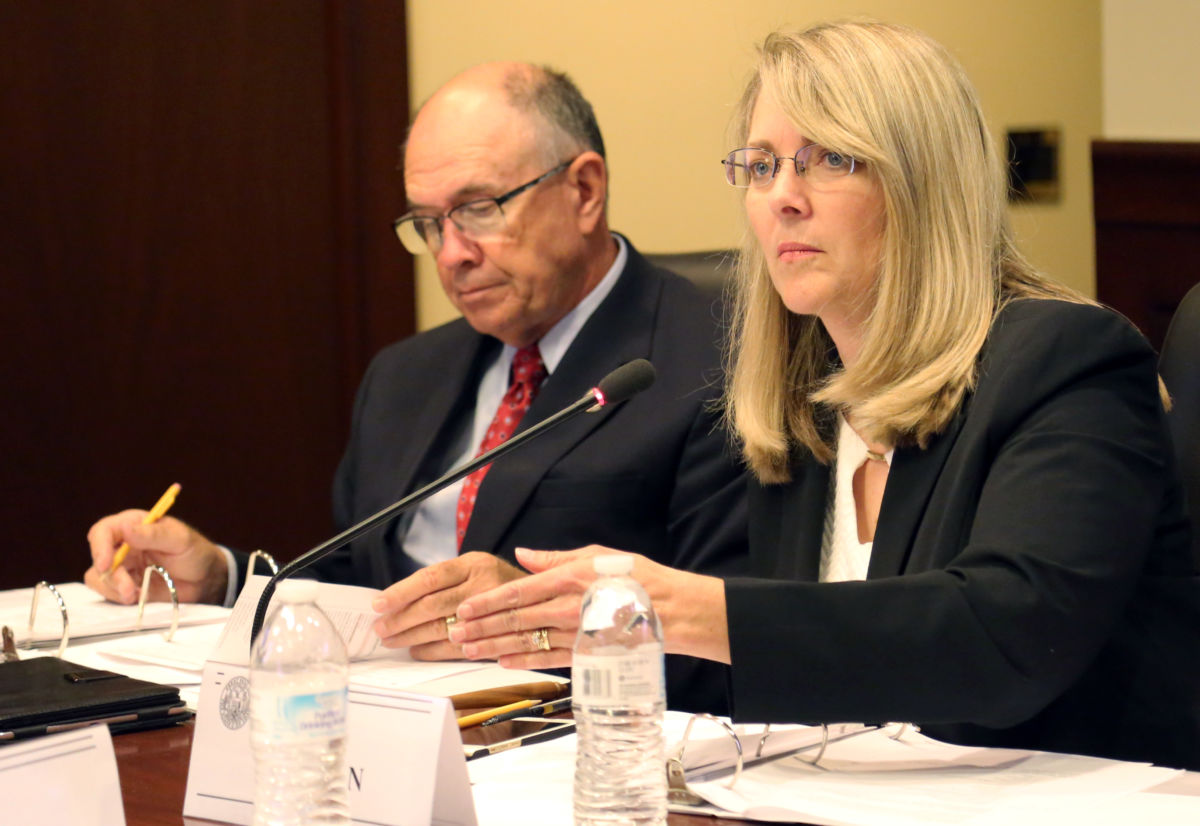The Legislature’s school funding formula committee needs help.

So the committee’s co-chairs — Sen. Chuck Winder and Rep. Wendy Horman — will start negotiating with national consultants who can help lawmakers look at changing the funding formula.
The committee has money to hire consultants; the 2017 Legislature gave the panel a $400,000 line item. But technically, Winder and Horman did not have the authority to sign contracts — until Monday, when the committee voted unanimously to give the co-chairs the go-ahead.
The funding formula is important, and controversial, because it is the mechanism the state uses to distribute the state’s K-12 dollars, approaching $1.7 billion this year. The state has not updated the funding formula since 1994.
The committee’s task is to try to rewrite the formula to better reflect more than two decades of change in the K-12 system, such as online learning and classroom technology, the rising costs of IT staffing and other specialized jobs and the advent of charter schools.
Now in its second year of work, the funding formula committee might have recommendations for the 2018 Legislature. One way or the other, the committee must finish its year’s work by a Nov. 30 deadline, Horman said Monday.
During a morning meeting in the Statehouse, committee members spent part of their time going over comparisons with other states’ formulas. Legislative staff drew up a table comparing Idaho’s formula with seven other states — including Massachusetts, California and neighboring states of Oregon, Nevada and Utah.
But lawmakers were quick to point out some of the quirks in Idaho’s system.
When the Legislature slashed $260 million in school property taxes in August 2006, using a sales tax increase to cover much of the cut, lawmakers limited the schools’ ability to raise local dollars, said House Speaker Scott Bedke, R-Oakley.
Meanwhile, Idaho is moving to adopt a “mastery” model that moves students through grades based on subject knowledge, not seat time. The state could be a national leader on the mastery front, said State Board of Education President Linda Clark.
The committee also listened to a presentation on a computer model that simulates school funding formulas — offered by Bluum, a Boise-based nonprofit group supporting school choice.
The model will allow lawmakers, or interested members of the public, to see how changes in the formula would affect their local schools’ bottom line. Bluum’s funding simulator is available on its website.
Bluum favors a shift to a student-centered funding model, which would allow dollars to follow students more quickly. Idaho’s current model is based on average daily attendance, but Bluum says this model does not respond efficiently to student movement.
Bluum’s funder, the J.A. and Kathryn Albertson Family Foundation, offered funding to the committee last summer. Lawmakers turned down the funding. After that, the foundation decided to pay to develop a computer simulator, Bluum CEO Terry Ryan said.
Disclosure: The J.A. and Kathryn Albertson Family Foundation funds Idaho Education News.
